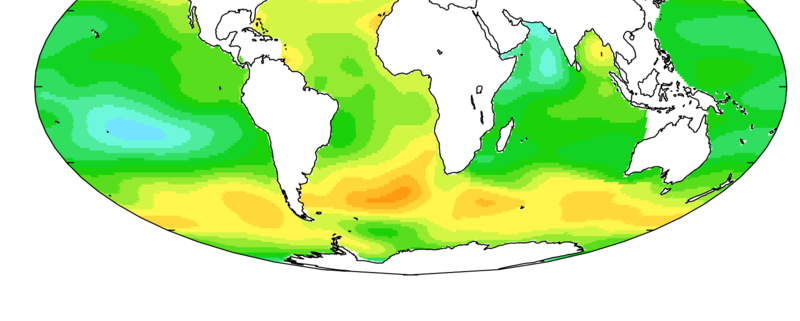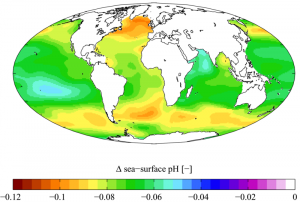Towards Improved Socio-Economic Assessments of Ocean Acidification’s Impacts
by Heather Alberro, RJD Intern
This article focuses on the issue of ocean acidification and the complexity of its impacts on the marine environment, marine organisms, and on humans societies that depend on the goods and services provided by thriving oceans. The authors of the article stress that, due to the trans-disciplinary nature of the causes and effects of ocean acidification, a more holistic approach should be adopted in order to study this problem more effectively. Any policies addressing ocean acidification, as well as other environmental threats, should be implemented with concern for current as well as future impacts of such policies. This article points out the salience of the 2010 International Workshop in Monaco, a remarkable step towards more holistic research, which brought economists and scientists together in order to combine their contrasting knowledge bases and thus facilitate a multidisciplinary approach to ocean acidification studies.
Ocean acidification has been spurred largely by CO2-increasing anthropogenic activities such as the burning of fossil fuels. The oceans sequester CO2, but as the amounts being taken up increase, ocean acidification occurs, after a series of chemical processes. CO2 sequestration by the oceans does help mitigate the effects of climate change, yet these increases in CO2 sequestration also alter the ocean’s chemistry. Current data on the effects of ocean acidification on ecosystems and organisms is limited and only just beginning to be understood. Some direct effects include physiological disruptions such as changes in behavior and reductions in fertility. However, the indirect effects of ocean acidification are much more difficult to predict and analyze because of the complex nature of ecological interactions. Generalizations are difficult to make because the effects of ocean acidification vary across species, and very few species have been studied. More research is needed on the abilities of organisms to adapt to rising CO2 levels, as well as on the dynamics between ocean temperature, CO2, and other environmental factors, particularly in coastal regions where these dynamics are not so well understood. Further research would help gage the socio-economic effects of ocean acidification on coastal communities dependent on tourism and other goods from the oceans. Research would also greatly facilitate the implementation of effective socio-economic policy.

A SAMI pCO2 censor at NOAA CREWS station. Censor colelcts pCO2 and temperature data for the analysis of the effects of ocean acidification on coral reef ecosystems.
The article noted the need for a more thorough understanding of the ability of societies to adapt to future changes brought on by ocean acidification. The interactions between societies and the environment are indeed complex and multifaceted, as the attempts to address such interactions should be. Therefore, models designed to study these interactions should be designed to explore their multidimensional nature, not just one side of the relationship, as both ends indeed influence each other. Research programs must be designed which bring together biologists and economists in order to gain more insight into the “bio-socioeconomic” effects of ocean acidification. Effective research and policy take into consideration the various factors that shape particular issues of concern. Therefore, in the case of ocean acidification, one can’t simply study it in isolation from other environmental occurrences such as climate change and biodiversity loss. Often, such issues are very much intertwined. The same idea applies to approaches to research. One must adopt multidisciplinary strategies that incorporate input from various fields of study, ranging from economics and sociology to biology and chemistry. The further these various approaches are integrated in research, the more accurate the data and extrapolations will be, along with their relevance to society.





Leave a Reply
Want to join the discussion?Feel free to contribute!